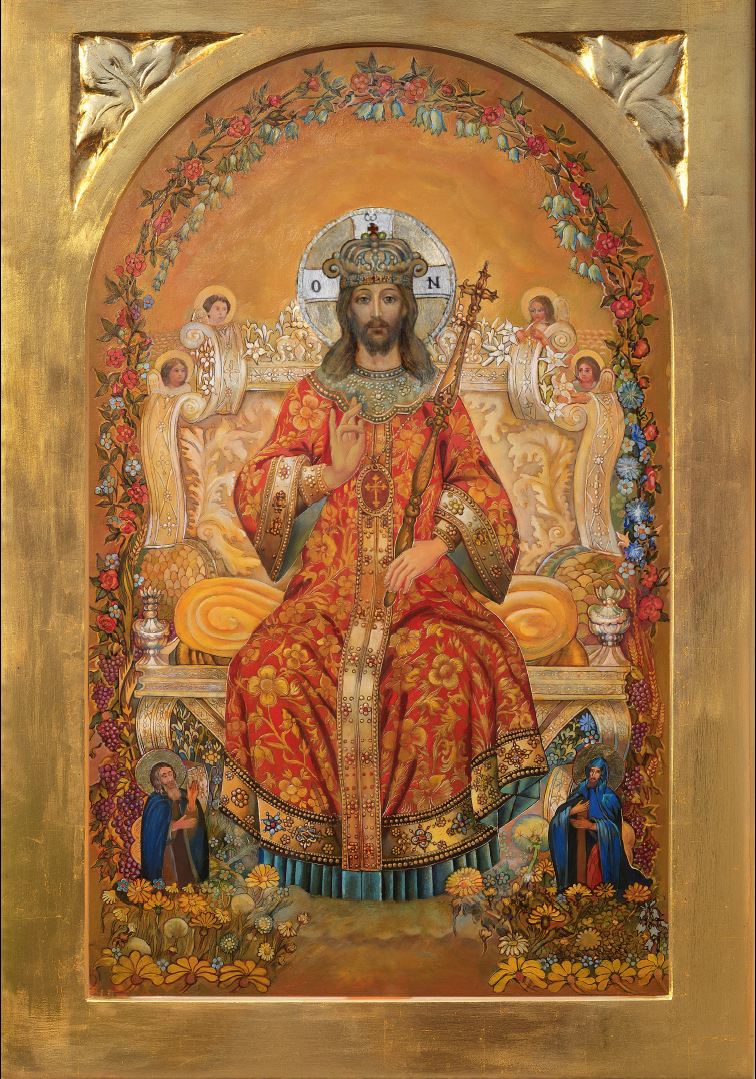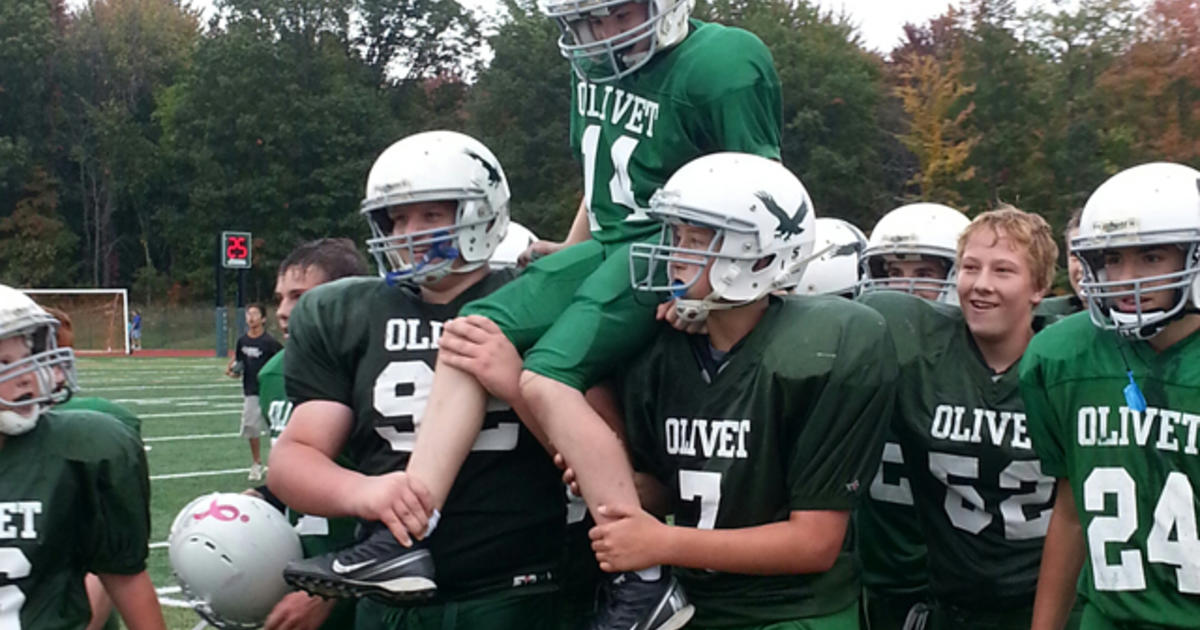5 All
the tribes of Israel came to David at Hebron and said, “We are your own flesh
and blood. 2 In the past, while Saul was king over us, you were
the one who led Israel on their military campaigns. And the Lord said to you, ‘You will shepherd my
people Israel, and you will become their ruler.’”3 When all the
elders of Israel had come to King David at Hebron, the king made a covenant
with them at Hebron before the Lord,
and they anointed David king over Israel.4 David was thirty
years old when he became king, and he reigned forty years. 5 In
Hebron he reigned over Judah seven years and six months, and in Jerusalem he
reigned over all Israel and Judah thirty-three years.6 The king
and his men marched to Jerusalem to attack the Jebusites, who lived there. The
Jebusites said to David, “You will not get in here; even the blind and the lame
can ward you off.” They thought, “David cannot get in here.” 7 Nevertheless,
David captured the fortress of Zion—which is the City of David. ~ 2 Samuel 5:1-7
Have you ever heard of the Anglo-Zanzibar War? Fought
between the United Kingdom and Zanzibar on 27 August 1896, the conflict lasted
approximately 40 minutes, making it the shortest war in history. Our passage of
scripture may give it a run for its money – at least in its brevity of description
– it’s poignant “nevertheless” – a war in only seven words: “Nevertheless,
David captured the fortress of Zion.” How can we inhabit this tenacity? How can
we craft a “nevertheless” vision for our church? What will make us a part of
the “nevertheless” gang?
1.
Follow
the leader (I’m not David. You’re not David. Jesus is David)
POINT: To follow the
leader means that the church isn’t on hold without a senior pastor or in limbo
because it doesn’t know what to do – the leader hasn’t left, he’s active and the
mission is the same!
David, of course, in the scriptures is more than David. His name and activity were connected by God to the promised king whose kingdom would never end” (2 Samuel 7:12-17). This promise became the very premise behind the Israelites waiting for a “messiah” and when you hear that word always hear “king.” This is why Jesus was referred to, right off the bat, as the “son of David” (cf. Matthew 1, Luke 3, Romans 1:3). He is the one who is our “shepherd” who will declare God’s kingdom come at the age of “thirty” (2 Sam. 1:4). Friends, it’s true that we’re missing a permanent senior pastor that we dearly loved. And though Don hasn’t died and in no way resembles Saul - like Saul – he’s gone. His leadership has ended. But that doesn’t leave us leaderless. In fact, our passage clues us into a different perspective. In vs. 2 the Israelites confess that even “while Saul was king,” it was “you” [David] who had been leading, helping and guiding (vs. 2). The Hebrew is emphatic – literally “you, it was you.” So Jesus has been the leader all along. Jesus was the leader while Don was here and Jesus is the leader now that Pastor Mike has joined us!

To follow Jesus as the leader is to know his words and act
on them. In our story there are a number of interesting people who relate to
David – the Israelites and elders who make a covenant with him, the Jebusites
and their “blind and lame” who supposedly can keep David out, and David’s own
men. It’s interesting that David advances toward and conquers the city only with
“his men,” referring to his band of loyal mercenary soldiers who owe loyalty only
to him, and not the Israelites. The church doesn’t need people fiercely loyal
to itself. When that happens we will try to protect ourselves, get wrapped up
in petty concerns, be incapable of hearing any criticism or critique. Friends,
what MCC needs if we wish to be healthy, if we wish to conquer, is to be loyal
only to him.
2.
Know
the objective – the city.
POINT: The objective
is not about better attendance, tastier coffee, a more fulfilling life, though
all those things may be good. The objective is about a city transformed Jesus’
way.
The objective has always been the city. And nothing – not
Jebusites or taunts or rival political allegiances, nothing will keep God from
accomplishing its conquering. But what
does that conquering of the city look like? Three things seem important:

First, notice that
it’s a bloodless even fightless confrontation – a simple nevertheless. One
reason for so little detail about this battle and the two battles with the
Philistines just after relates to the fact that they were considered God’s
battles. God’s battles are always “nevertheless.” The danger for the church is
that we arm ourselves wrongly because we forget whose army we are. We don’t arm
ourselves with guns but shovels, not weapons but medicine, not hatred but love.
Second, a conquered
and restored city has always been the spirit-filled job description of the
messiah and his followers. This is captured in Isaiah’s prophecy which
Jesus himself quotes to launch his own ministry (Isaiah 61). Jesus stated, that
he was the one whom Isaiah wrote about who would bring good news to the poor,
the oppressed, the brokenhearted, etc. (Isaiah 61:1-2; Luke 4:16-21). It is interesting to note, however, that the
prophecy of Isaiah also goes on to say that those who received that good news would
have their own job description to “repair the ruined cities, the devastations
of many generations” (Isaiah 61:3b-4). Thus the messianic vision was that a
people would cooperate with, and demonstrate, his rule and reign by repairing
“ruined cities”.
Third, when we
understand that Jesus is our David we recognize that Jesus doesn’t simply
conquer cities but that he does so through broken and restored people. Just
as David wasn’t thwarted by the blind and the lame Jesus will not be either but
for a different reason. The Jebusites taunt David with the blind or lame
because they believe that their city is so well-fortified that it remains
impregnable. Jesus, however, is NOT thwarted by the blind and the lame because
he actually uses them to conquer cities. Jesus wins by converting the broken and
enemies to friends – by taking the useless, the estranged, the people who are
the butt of the joke, the subject of taunts, and making them useful, connected
and whole. Do you feel inadequate? Then you are that much closer to actually
being a part of Jesus’ conquering force. Jesus conquers by turning enemies into
friends.
I have a friend who is a Christian activist who works on
homelessness issues – helping people who are homeless find justice and peace by
being housed with supportive services. In the city he works he was often
opposed by a neighborhood business organization that simply wanted the homeless
moved out of the area. My friend sought common ground where no one else could
and went to that group with the idea that they could be friends rather than
enemies. He told them he would help them get their wish to move those who were
homeless out of the area. They agreed and the covenant has yielded incredible
results, housing 17 people. My friend understands what it means to follow Jesus
in order to conquer the city. It means loving enemies until they actually join
your side! As we seek to gain a vision of the “nevertheless” let us never shy
away from the missional goal of the city to make our enemies into friends.
3.
Be a
“we.”
POINT: Our ability to
follow Jesus, our success in joining his mission in transforming our city, will
have everything to do with our commitment to be a “we,” to be a tribe for him.


In vs. 1 this story begins with: “All the tribes of Israel came to David at Hebron and said,
“We are your own flesh and blood.” They turned their back on all of their differences,
the previous civil war between the northern and southern kingdoms and focused
on the things they had in common, the things that could unite them. This is a covenantal bond of solidarity.
The people of God are never at their best when their primary
concern is to “be right”, to “be relevant”, or to “be powerful.” We should
never underestimate the desire of the enemy to use such things to sow discord
and dissension. I constantly tell engaged couples to always remember that
“being right is overrated.” Being right will not bring marital harmony.
But if Montecito Covenant becomes a “we” which covenants
with Jesus Christ – nothing will be capable of separating us. The Evangelical Covenant
Church has staked its identity on the fact that unity itself a critical, theological
idea of great importance – made to sit alongside things like the trinity, the
incarnation, the deity of Jesus. In John 17, Jesus doesn’t pray that they would
know everything like us, or even do miracles like us, but that they would be
one like us. Are we one?
But there is another way in which unity is expressed in this
passage. The formula of “flesh and bone” is not so much a statement about
biological kinship as the recognition that the two parties stand together in
both strength (bone) and in weakness (flesh). That’s what unity is – not simply
some tacit agreement to not talk about certain things but to deeply love and
support one another in sickness and in health, in poverty and in wealth, and
while marriage is a nice image I would like to focus elsewhere – on team sports
and what many have called the
most successful football play of all time.

The teammates of Keith Orr, a student at Olivet Middle School in Michigan with some learning disabilities (and who is a hugger), schemed to do something wonderful for him — without the knowledge of their coach or their parents.
In one
game in October of 2013, the team enacted their two-play plan at a home game.
Play 1: get as close to the end zone as possible without scoring. Play 2: give
the ball to Orr and protect him as much as possible in a rush to a touchdown.
To watch the video click on the following link:
https://www.youtube.com/watch?v=0Ejh_hb15Fc&t=114s
That’s
a good story. And the moment that’s most profound is when wide receiver Justice
Miller shares an important lesson about what it means to be a “we.”
He
said “…he’s never been cool or popular. He went from being pretty much a
nobody, to making everyone’s day.” Did you catch that? He thought that he was
doing something nice for someone and didn’t realize until it happened how much he
himself would be blessed. How much he needed Keith Orr.
Justice Miller
said he learned to look out for the feelings of others more than just he and
his friends. “I kind of went from being somebody [who] mostly cared about
myself and my friends to caring about everyone and trying to make everyone’s
day and everyone’s life.”
Friends, that’s
our parable for what the “we” should mean in our midst. How we must be
together. It means that we need each other to find our place, to find our way. It
reminds us that we all have need and that we all have something to offer to
fill that need. And if we do it. Then despite what problems we face,
nevertheless, we’ll conquer.
No comments:
Post a Comment